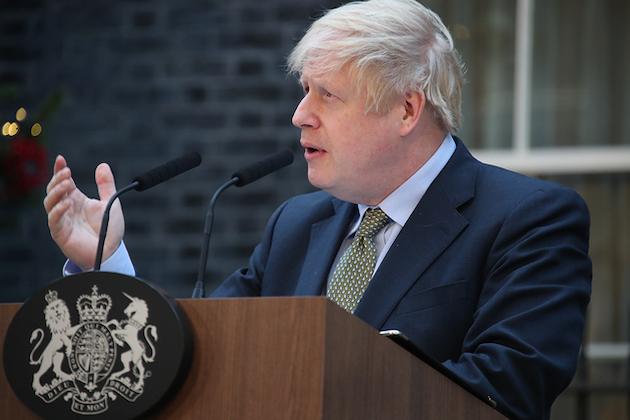

LONDON, England: In a move that angered some members of his governing Conservative Party, Prime Minister Boris Johnson announced a planned tax increase affecting workers, employers and some investors, aimed at solving the UK’s health and social care funding crisis.
The tax increase, which runs contrary to a promise made by Johnson in his party’s 2019 manifesto, also seeks to reduce the backlog in the UK’s National Health Service, after resources were re-prioritised to deal with the COVID-19 pandemic.
Johnson told parliament, “It would be wrong for me to say that we can pay for this recovery without taking the difficult, but responsible decisions, about how we finance it.”
Johnson then outlined the details of a new health and social care “levy,” which will see the National Insurance tax rate, as well as the tax on shareholder dividends, increase by 1.25 percent to raise $50 billion over three years.
Commenting on the announcement at a news conference, Finance minister Rishi Sunak stated, “This is a permanent new role for the government.”
In an attempt to pacify members of his own party, which considers itself the defender of low taxes, Johnson stressed that he does not want any further tax increases, but did not rule them out.
Long-term reform is required to care for elderly and disabled Britons, many of whom are forced to sell their homes to fund their health expenses, Johnson added.
“You cannot fix health and social care without long-term reform. I accept that this breaks a manifesto commitment, which is not something I do lightly, but a global pandemic was in no one’s manifesto,” he continued.
In response, Labour leader Keir Starmer mocked Johnson, stating, “Read my lips, the Tories can never again claim to be the party of low taxes.”
Some British businesses also said the increase in national insurance costs will further harm companies already struggling because of the pandemic.
“This rise will affect the wider economic recovery by landing significant costs on firms already facing a raft of new cost pressures,” said Suren Thiru, Head of Economics at the British Chambers of Commerce, as reported by Reuters.
Johnson’s critics claim he is again increasing government spending without offering clear reform, and young and low-paid workers will be disproportionately affected.
24World Media does not take any responsibility of the information you see on this page. The content this page contains is from independent third-party content provider. If you have any concerns regarding the content, please free to write us here: contact@24worldmedia.com

Common Mistakes When Using Athletic Field Tarps

High-Performance Diesel Truck Upgrades You Should Consider

Warehouse Optimization Tips To Improve Performance

Fire Hazards in Daily Life: The Most Common Ignition Sources

Yellowstone’s Wolves: A Debate Over Their Role in the Park’s Ecosystem

Earth Day 2024: A Look at 3 Places Adapting Quickly to Fight Climate Change

Millions of Girls in Africa Will Miss HPV Shots After Merck Production Problem

This Lava Tube in Saudi Arabia Has Been a Human Refuge for 7,000 Years

Four Wild Ways to Save the Koala (That Just Might Work)

National Academy Asks Court to Strip Sackler Name From Endowment

Ways Industrial Copper Helps Energy Production

The Ins and Out of Industrial Conveyor Belts